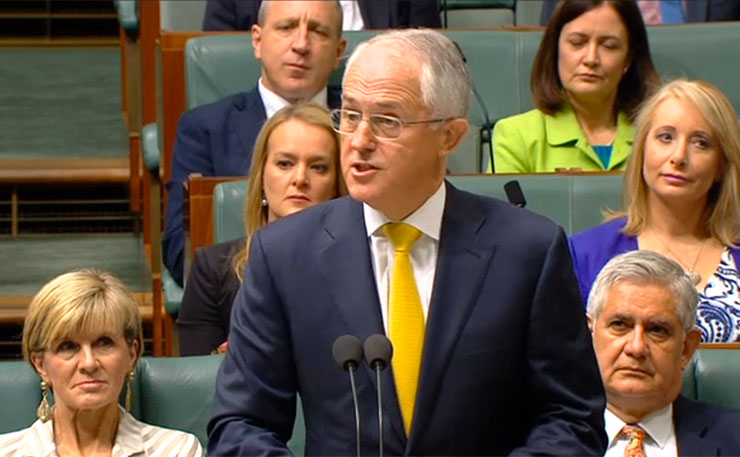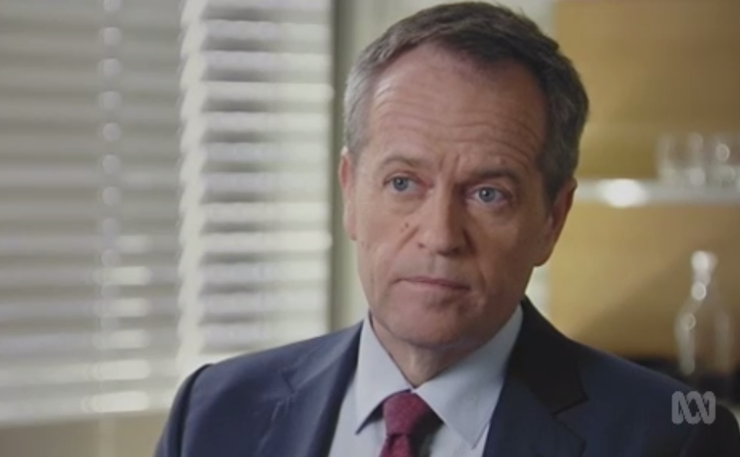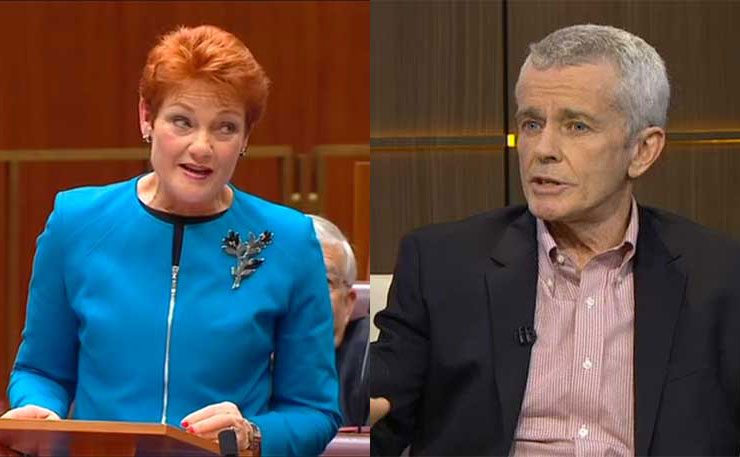Labor, Liberal, it doesn’t really matter, writes Richard King.
Even by the standards of the Australian parliament, this year has been a dull affair, at least for those of us more interested in policy than in the politics of politics.
The recent agonies over the backpacker tax were almost Talmudic in their hair-splitting tedium, while the faux debate on immigration sunk even further into absurdity, with Labor basing its opposition to the government’s lifetime entry restrictions, not on a point of high moral principle, but on the fact that it may discomfit future tourists with Nobel Prizes or titles of high office.
The parties argued endlessly over how – not whether, but how – to pass same-sex marriage into law, and locked horns on the all important question of whether to have a Royal Commission into the banking sector or invite the bankers themselves up to Canberra for a cup of tea and a bit of an old chat.
The Turnbull government’s one significant victory came with the passage of the ABCC bill, though by the time the legislation had passed through the Senate it was more full of holes than a feral pig after an encounter with an Adler shotgun. Oh, and there was the Adler shotgun, the legal classification of which is apparently one of the major questions of our age.

Reviewing this string of non-events, it is impossible not to think of Sigmund Freud’s notion of ‘the narcissism of minor differences’ – the idea that individuals and groups, in an effort to distinguish themselves from other individuals and groups more or less the same as them, will identify some small dissimilarity and accord it undue emphasis. Think Protestantism vs. Catholicism or Marmite vs. Vegemite or the People’s Front of Judea vs. the Judean People’s Front. Or a high-school student when first confronted with the US spelling of, say, ‘colour’: ‘Ohmygod! Americans are sooooo weird …’
Freud wasn’t overly worried by this tendency, but others have regarded it as potentially dangerous. In The Warrior’s Honor – heh, ‘Honor’ – Michael Ignatieff applies the theory to ethnic conflict in failed states.
In such situations, Ignatieff suggests, people seek security in groups and then attempt to legitimise their identities through the isolation and exaggeration of small differences. The differences are then exaggerated further by leaders seeking to distinguish themselves, demonising other groups in the process.
In extreme cases – in the former Yugoslavia, for example – such differentiations can lead to war.
Things aren’t that bad in Canberra, yet. But the social and economic conditions that have made sense of the current duopoly for decades are changing very rapidly indeed, with the result that the Liberal and Labor parties are arguing more and more about less and less. Faced with flux, they’ve chosen inertia, and dressed it up as cut and thrust.

The situation isn’t hard to anatomise. The kind of capitalism we’ve had for four decades has not only ceased delivery for many people in mature democracies, it has also robbed them of the very things the politicians who carried it forward claimed, and still claim, to hold most dear: the sense of a settled community, national self-determination, family values, all of that.
The result has been the rise of minor parties, many of them demagogic, others asking questions that need to be asked. Shielded as Australia was from the full effects of the GFC, it still hasn’t witnessed anything as nasty as, say, Jobbik in Hungary or the Freedom Party in Austria, nor anything as radical as Syriza in Greece or Corbynism in the UK.
But the voters are deserting the major parties nonetheless, and not because they lack the ‘centrism’ reflexively prescribed by Paul Keating. Third parties used to pop up between the major players; now, increasingly, they pop up on their flanks, robbing ‘the centre’ of voter-share and exposing the main parties’ internal divisions.

It is in this context that the narcissism of minor differences is able to flourish. For who in the major parties will admit that in all but a few particulars they have more in common with each other than they do with the protectionism of NXT or the nativism of Hanson and her drongos? Better to trade horses with the cross-benchers than concede that the ALP and the LPA are different cheeks on the same derriere.
In a weird way, by attempting to differentiate themselves, the major parties are cleaving together, trying to convince both their members and the voters that it is between them, and only them, that the major political difference lies. Look at us, say your Turnbulls and your Shortens, your Cormanns and your Wongs, doing politics, having important disagreements… But nobody is fooled.
Last week’s emissions intensity scheme debacle was a peerless example of this dynamic in action, and indeed of dynamic inaction. Fearing that the adoption – no, the discussion – of such a scheme would undermine the Liberals’ ability to distinguish themselves from Labor on climate policy, Turnbull pulled the plug before the tap was even on. It was a spectacular failure of courage and leadership, and a perfectly fitting end to the year.
Of the narcissism of minor differences, Freud wrote: ‘We can see now that it is a convenient and relatively harmless satisfaction of the inclination to aggression, by means of which, cohesion between the members of the community is made easier.’
Well, the price of group cohesion in this instance is a virtual democracy and a climate change policy so absurd you could put it in a suit and call it Rod Culleton. Good work Malcolm. Good work Bill. And roll on 2017.
Donate To New Matilda
New Matilda is a small, independent media outlet. We survive through reader contributions, and never losing a lawsuit. If you got something from this article, giving something back helps us to continue speaking truth to power. Every little bit counts.





